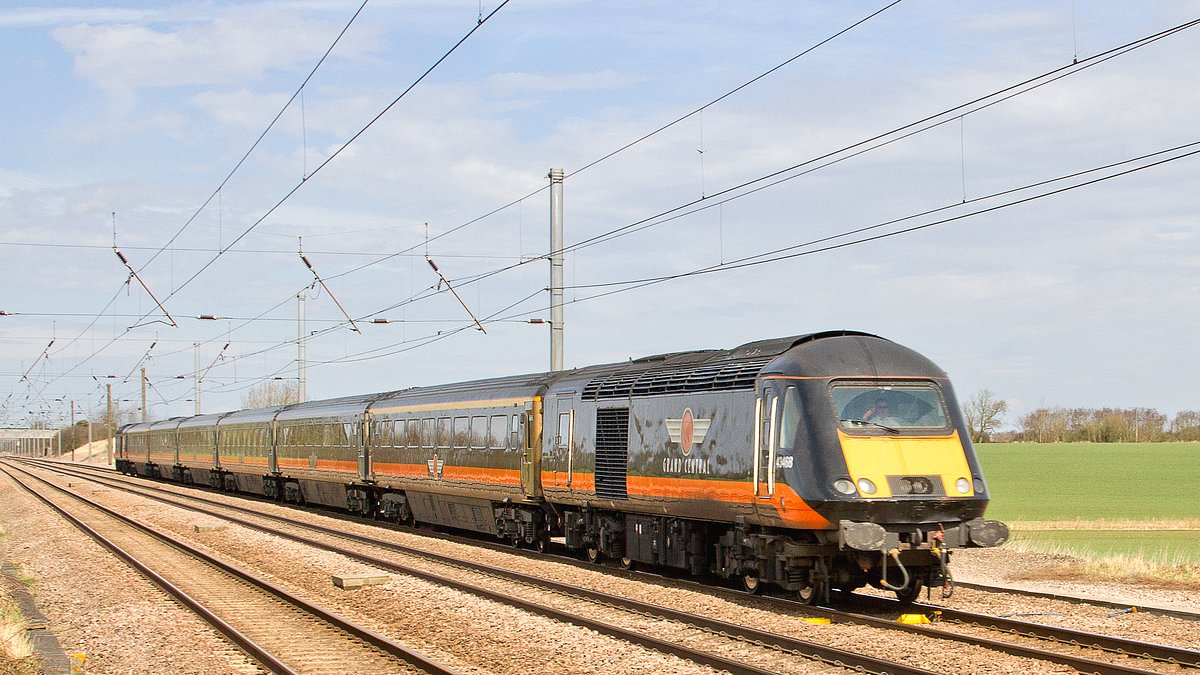Direct trains between Newcastle and Brighton could be on the way after an operator unveiled plans for services to run by the end of next year.
Arriva Group said the trains under its Grand Central brand would call at stations such as York, Sheffield, Birmingham New Street, Oxford, Reading and Gatwick Airport.
The new route would enable passengers to travel by train between the North East and the south coast without changing trains in London, which is currently required.
Services would call at Durham, Darlington, Northallerton, York, Doncaster, Sheffield, Derby, Burton-on-Trent, Birmingham New Street, Warwick Parkway, Banbury, Oxford, Reading, Wokingham, Guildford, Redhill, Gatwick, Haywards Heath and Brighton.
Travelling from Newcastle to Brighton – which was recently ranked as one of the UK’s best seaside towns to move to – currently takes about four-and-a-half hours by rail, starting with a three-hour LNER train from Newcastle to London King’s Cross.
From there, one option for passengers is to walk to St Pancras for a direct Thameslink service to Brighton. They can also use the London Underground to travel from King’s Cross to Victoria, then catch a Southern or Gatwick Express service to Brighton.
But Arriva is now submitting an application to regulator the Office of Rail and Road (ORR) for permission to launch direct services from Newcastle to Brighton, and hopes five trains per day in each direction could begin running from December 2026.
The route will also be helpful to fans of Premier League football clubs Newcastle United and Brighton and Hove Albion when the two play each other – such as in the fixture scheduled for this Sunday at the American Express Stadium in East Sussex.
Grand Central already runs services connecting Sunderland and Bradford with London King’s Cross.
The Sunderland service runs via Hartlepool, Eaglescliffe, Northallerton, Thirsk, York and Peterborough.
And the Bradford trains stop at Low Moor, Halifax, Brighouse, Mirfield, Wakefield Kirkgate, Pontefract Monkhill, Doncaster and Peterborough.
Arriva Group said the Newcastle to Brighton service would offer a ‘more efficient, affordable and sustainable travel option’.
Paul Hutchings, managing director of Arriva UK Trains’ rail services, said: ‘We’re committed to connecting communities and enabling more people to travel in ways that are convenient and sustainable.
‘So we’re very pleased to be submitting this application for the first direct service between Newcastle and Brighton, opening up new travel opportunities and making better use of available network capacity – all while building on Grand Central’s proud history of connecting traditionally underserved communities.
‘This is an exciting time for Grand Central’s growth story and follows the extension of our existing access rights to 2038 as well as the recent announcement of an investment of around £300million in a new battery hybrid train fleet for our existing routes, further underlining our commitment and ambition for rail in the UK.’
Jonathan Pollard, chief commercial officer of Gatwick Airport, added: ‘We welcome Arriva’s exploration of a regular service between Gatwick, the Midlands and North East.
‘Gatwick is keen to encourage passengers to use public transport and this enhanced connectivity would support underserved areas, while strengthening and growing our catchment.’
There are a series of other applications currently awaiting approval from the ORR, include two extra daily return services between Bradford and London.
Another is an early morning and late evening return from York to London, while a third is a direct London connection to Grimsby and Cleethorpes in Lincolnshire.
Most train operators in England are paid a management fee, with the Government holding responsibility for costs and revenue.
Open access operators receive no taxpayer-funded subsidies and take on all revenue risk.
The Department for Transport will next month begin bringing all services under public ownership as existing contracts expire.
Transport Secretary Heidi Alexander has expressed concerns that the open-access model can cause ‘potential congestion’ and result in taxpayers being ‘left to fill shortfalls’ in infrastructure maintenance costs.
The Cabinet minister wrote to ORR chairman Declan Collier in January, stating it is her ‘expectation’ that ‘the impacts on the taxpayer and on overall performance’ are ‘given primacy’ by the regulator when it analyses proposals.
While acknowledging that open access can ‘open up new markets, drive innovation and offer choice to passengers’, she insisted there is ‘a balance to be struck’.
